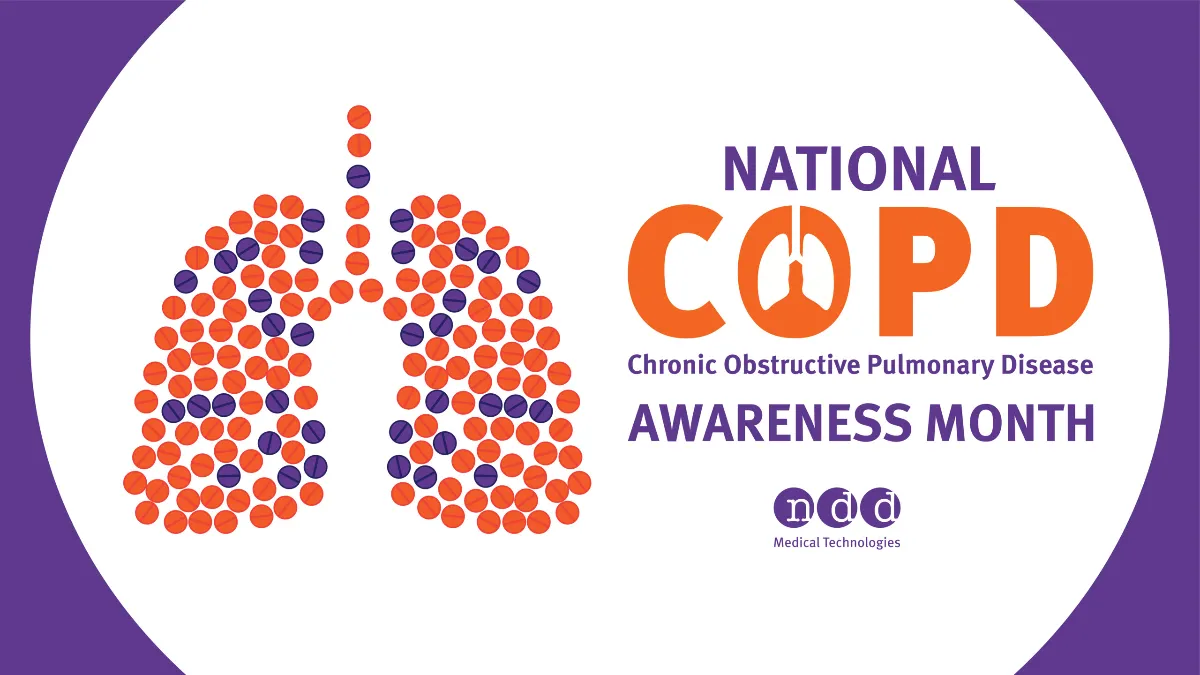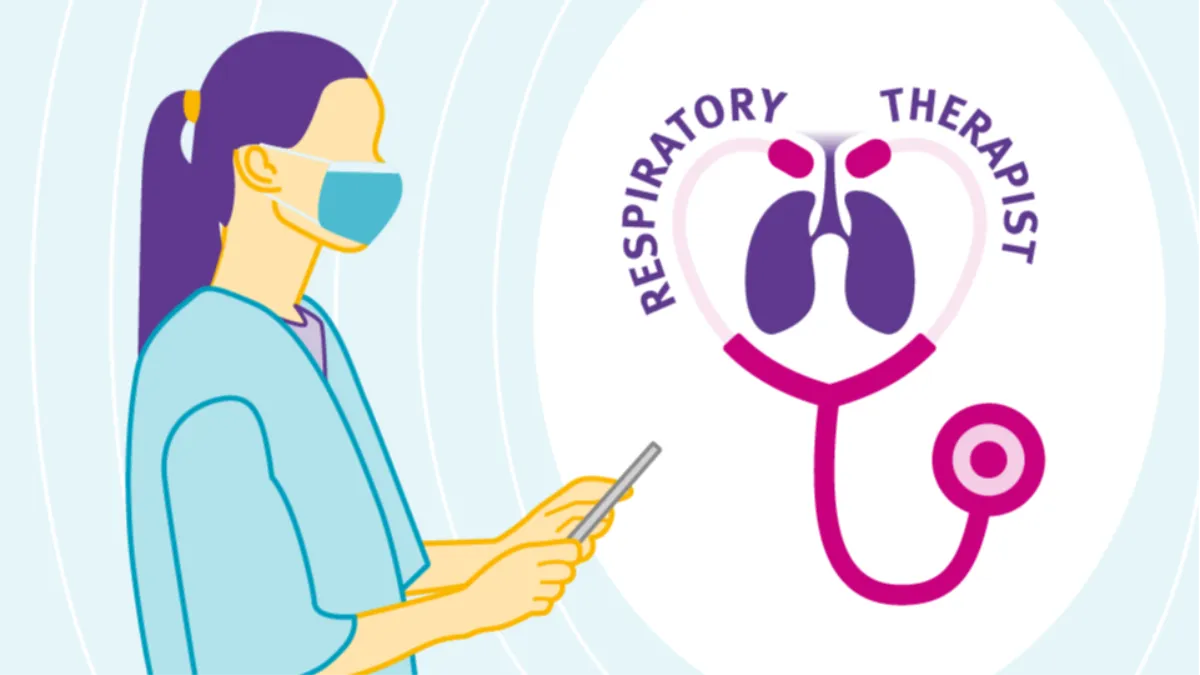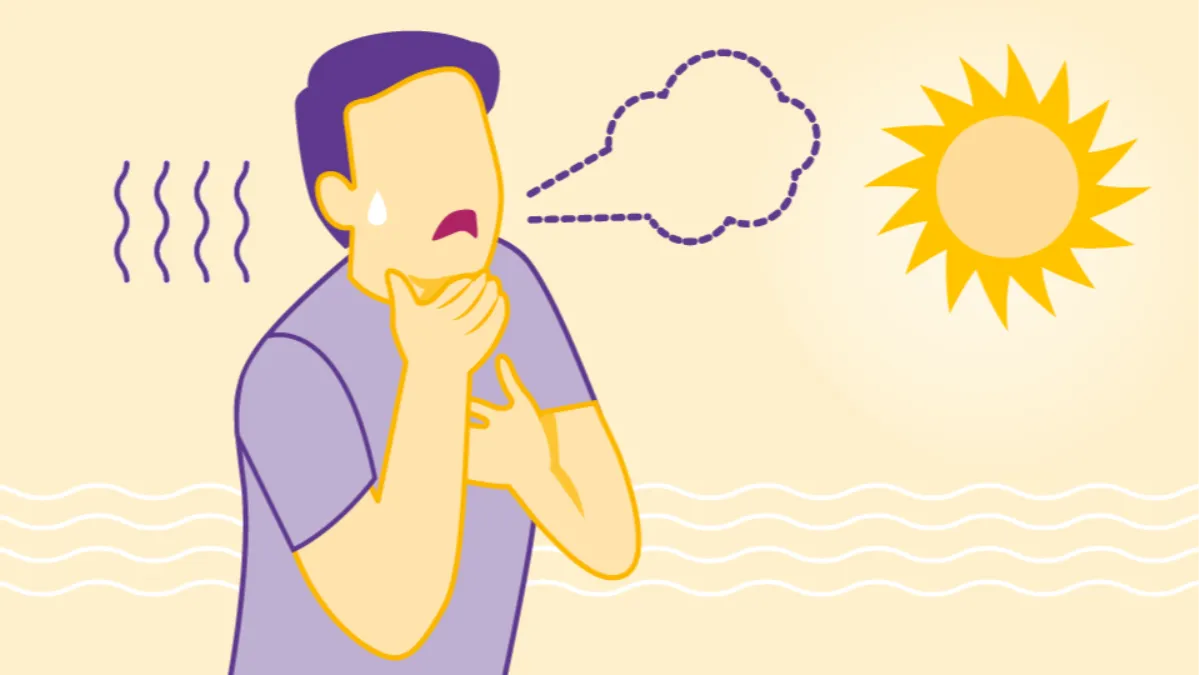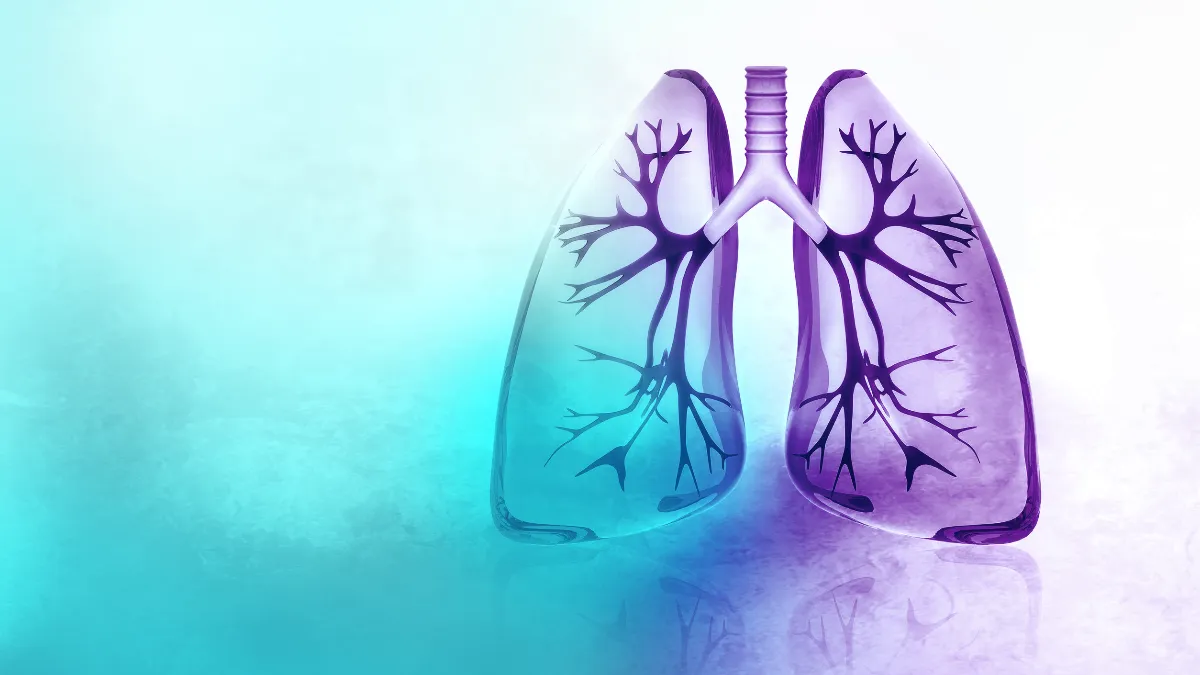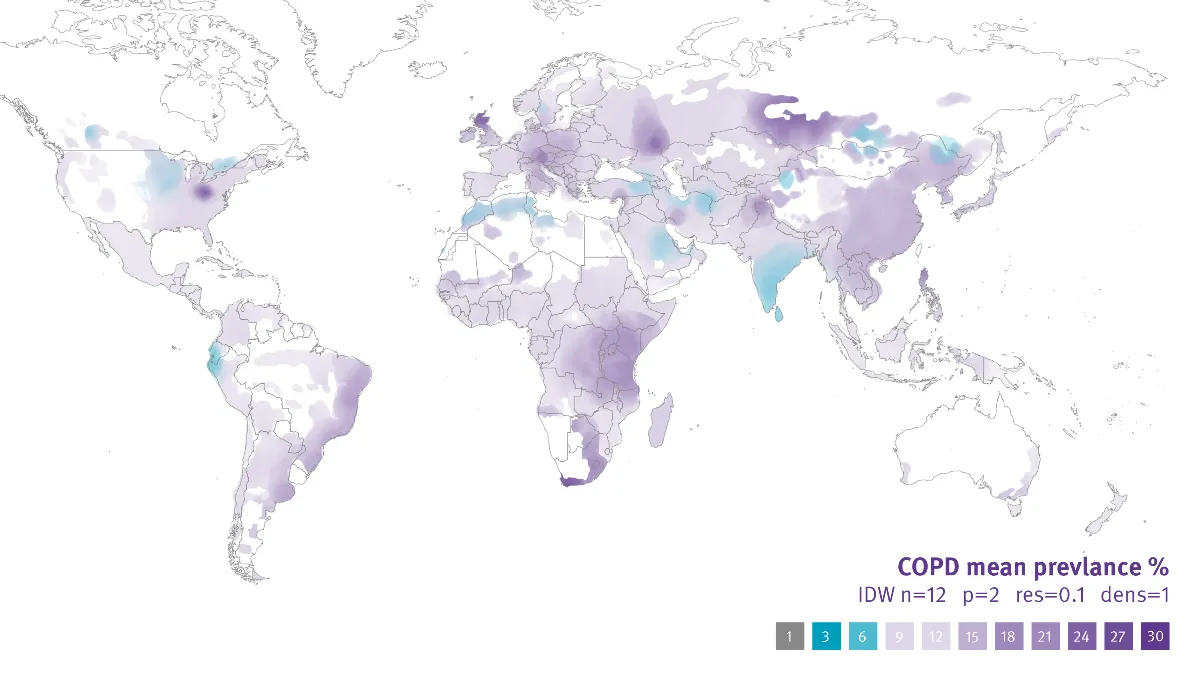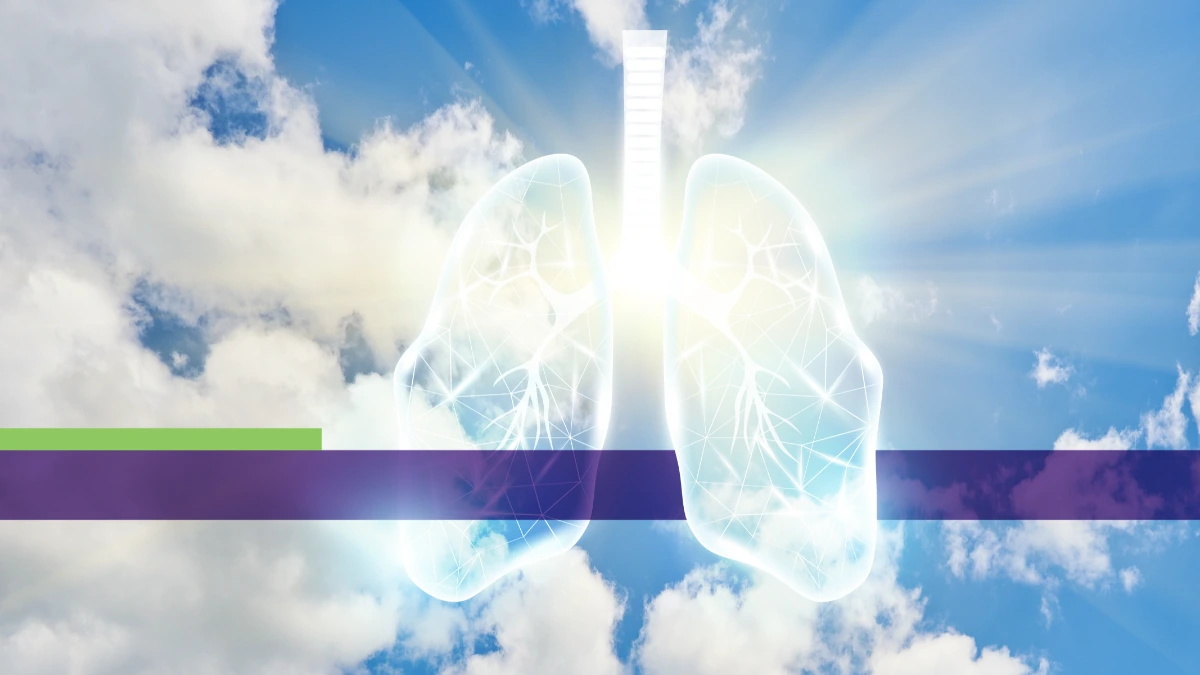COPD online resources for patients and care providers

Being diagnosed with any non-curable disease is often a frightening experience for a patient and their loved ones. In most situations, the fear comes from the unknown, or not having enough education or resources to learn the facts about the disease, whether it can be managed, and tips for improving the quality of life.
While there is currently no cure for Chronic Obstructive Pulmonary Disease (COPD) nor a way to regrow lost lung capacity, there is strong evidence to support that progression can be significantly slowed – or even stopped in some cases.
The key to LIVING with COPD is first understanding that you and your loved ones can LIVE with COPD. The first important step is to be diagnosed. Once the correct COPD diagnosis has been determined, the next steps include discovering the root cause, mitigate and remove the harmful exposure, and begin a treatment program that is effective for the individual patient.
The resources we’ve listed below will provide some much-needed links to online websites, articles, files, and agencies that are designed to help improve education, awareness and provide valuable resources for COPD patients and their caregivers.
The facts about Chronic Obstructive Pulmonary Disease (COPD) #
Let’s start with the first fact – if you’ve recently been diagnosed with COPD, it’s important to know that you can indeed LIVE with this lung disease.
Advancements in understanding the root source or cause, medical treatments, respiratory therapy, and technology have vastly improved a medical professional ability to manage and treat COPD patients.
What is COPD? #
So, what exactly is COPD? In truth, the name itself pretty much outlines the definition.
- [C] Chronic – A chronic medical condition is one in which there is currently not a cure.
- [O] Obstructive – The word obstructive relates to the condition of the lungs. COPD (whether it’s emphysema or Chronic Bronchitis) exists when there is an obstruction in the airways of the respiratory system. This means that the ability to breathe in and out is restricted – which is why a COPD patient struggles with breathing.
- [P] Pulmonary – This relates to the location of the disease – in the case of COPD, the pulmonary system, or the lungs.
- [D] Disease – A harmful deviation from the normal state of an organism, generally associated with diagnosable symptoms.
COPD is an umbrella term that includes a few specific lung diseases – mainly Emphysema or Chronic Bronchitis. Both diseases can be prevented – however, certain genetic conditions may contribute to the onset of this disease without exposure to toxins that damage the lung.
As COPD is a progressive lung disease, it causes a loss of lung function over time, which cannot be regrown. However, if the root source of the disease is determined (tobacco use, exposure to toxins or chemical agents) – the patient can slow down the progression – thus living a higher quality of life with the disease.
Technically speaking, COPD occurs when there is chronic swelling in the lungs, which damages the tubes that carry air into and out of your lungs (airways). This causes them to narrow and develop excessive amounts of mucus. Swelling in the air sacs of your lungs (alveoli) will cause damage to the lung tissue – which is ultimately what makes it difficult to inhale oxygen and exhale carbon dioxide.
When a patient is living with COPD, common, everyday tasks become much more difficult to accomplish, such as walking up the stairs, taking out the trash, or physical exercise. Sometimes, a patient with COPD will experience an exacerbation or a COPD Flare-up – which is triggered by an infection in the lungs. This is a sudden worsening of symptoms, that can be reduced by hospital visits, using a rescue inhaler (or medication).
Some of the most common symptoms of COPD include coughing, wheezing, tightness of the chest, and increased production of mucus. Severe COPD can lead to fatigue, weight loss, heart disease, lung cancer, thin bones, and other comorbidity factors. It’s due to these facts that being diagnosed sooner is crucial to the patient’s well-being.
How is COPD diagnosed? #
The first step in diagnosing COPD is recognizing the symptoms. If you are above 40 years of age, and notice shortness of breath, experience any issues breathing, or excessive coughing up of mucus, it’s crucial to see your primary care physician as soon as possible.
During your medical visit, make sure to tell your doctor about your workplace, hobbies, or social choices that may have exposed you to tobacco smoke, chemicals, excessive pollution, or fossil fuels. If the doctor determines that you don’t have a virus or respiratory infection, they will often recommend the patient to complete a non-invasive breathing test called Spirometry.
Spirometry measures the patient’s ability to breathe out forcefully – which helps the medical professional determine if an obstruction exists in the lungs. If there is a noticeable obstruction, they will complete additional breathing and blood tests to determine why the patient is experiencing these problems.
COPD patient resources from Lung.org #
The American Lung Association is the largest non-profit organization dedicated to education and awareness of lung-specific medical conditions and diseases. In recent years, its platform has rapidly increased its content development with regards to COPD.
Their website – Lung.org is filled with multiple articles, infographics, videos, and additional resources – that are easy to read and comprehend. Noted below are a few direct links to some of their highest-viewed articles and website pages focused on COPD patients and their caregivers.
- ABCs of using a nebulizer - [EN] | [ES]
- How Can oxygen therapy help me?
- Getting started with oxygen
- Using oxygen safely
- Using oxygen at home
- Traveling with oxygen
- Supporting someone on oxygen
- Lung transplants
- Recovering from a serious lung infection
- Steps you can take to get used to wearing a mask
- Staying active with lung disease
- Getting ready for your next office visit
Articles and blogs from The Chest Foundation #
The CHEST Foundation is the patient-focused philanthropic arm for the American College of Chest Physicians, who are on a global mission to be a champion for lung health.
Along with their fantastic work helping to educate COPD patients and caregivers, they provide millions of dollars in grants for clinical research studies and community outreach events, and we collaborate with physicians to create the most comprehensive patient-education tools you can find. Here is a link If you’d like to learn about the CHEST Foundation.
The information below includes several of their fantastic articles that help to educate COPD patients and caregivers about specific conditions or provide some tips for living with COPD. Just a fair warning, some of the language is rather medical-specific, so it may be a little confusing to some. However, it’s great information indeed.
- Alpha-1 antitrypsin 2018 - [EN] | [ES]
- Breathlessness – shortness of breath 2020 - [EN]
- COPD exacerbation (ECOPD) 2018 - [EN] | [ES]
- COPD 2019 - [EN] | [ES]
- COPD medicines 2019 - [EN]
- Cough 2016 - [EN]
- Emergency or disaster 2020 - [EN] | [ES]
- Health problems and burning indoor fuels 2018 -[EN]
- Managing your chronic lung disease during the COVID-19 pandemic 2020 - [EN]
- Metered Dose Inhaler MDI 2020 - [EN] | [ES]
- Oxygen therapy 2020 - [EN] | [EN - Audio]
- Pulse oximetry 2018 - [EN] | [ES] | [PT]
- Signs and symptoms of COPD 2019 - [EN]
- Sleep problems in asthma and COPD 2018 - [EN] | [ES]
- Surgery for COPD 2019 - [EN]
- Living well with COPD - [EN]
- COPD myths busted - [EN]
Professional organizations for COPD patients and caregivers #
Several professional organizations help COPD patients and their caregivers find medical resources, discounts for medication, and even host online or telephone support groups. The organizations listed below are those that are recommended by ndd Medical Technologies.
- American College of Chest Physicians (CHEST)
CHEST provides education resources related to COPD, including information on symptoms, causes, risk factors, diagnosis, and treatment. - American Lung Association
The American Lung Association website offers information about lung health education and research, as well as programs and services for people living with conditions such as COPD. - COPD Foundation
A not-for-profit organization created in 2004, the COPD Foundation supports research, education, and advocacy programs. Its website offers an online community for patients and caregivers affected by COPD, as well as information on the disease and a calendar of relevant events. - National Emphysema Foundation
The NEF website provides regularly updated news and information on research and treatments related to emphysema and COPD. Its archives include articles on prevention, living with COPD, and healthy habits. - National Heart, Lung, and Blood Institute (NHLBI)
The NHLBI’s website provides an A-to-Z guide to health topics, including a section on COPD. It provides general background on the disease along with specific information to help readers get tested and seek treatment. - Right2Breathe®
Right2Breathe® Inc. is a 501 (c)(3) non-profit organization based in New Jersey, created by two passionate professional race car drivers and COPD patient caregivers, who have a personal mission to improve the quality of life for those that live with COPD, Idiopathic Pulmonary Fibrosis (IPF), Asthma, and respiratory illness caused by attacks in New York City on 9/11/01.
Financial assistance #
The following websites provide guidance, resources, and assistance programs to help patients manage costs associated with medications and treatment.
- Patient Access Network Foundation
- Partnership for Prescription Assistance
- Patient Advocate Foundation: Co-Pay Relief
- RxAssist
COPD coping, advocacy, and support for patients and caregivers #
- COPD International
Founded by COPD patients, this online community offers regularly scheduled chats and message boards for people affected by the disease. There are boards aimed at specific age groups, caregivers, and people seeking information about treatments. - Living With COPD
The American Lung Association offers support and discussion community where people affected by COPD can share advice and experiences. - U.S. COPD Coalition
This coalition of patient and healthcare organizations, as well as government agencies, offers news and event information for members.
Medications and therapies for COPD and asthma #
While it is crucial to follow the instructions provided by your primary care physician or pulmonologist, several medication-specific websites offer education and assistance to patients taking these treatments. Some of the websites listed below also contain discount programs that you can fill out online.
- Albuterol - for lung diseases such as asthma and COPD
- Flonase (fluticasone) - to prevent and treat nasal inflammation
- Fluticasone-salmeterol - steroid and bronchodilator to treat asthma and COPD flares
- Roflumilast - to prevent worsening of COPD symptoms
- Salmeterol - bronchodilator to treat COPD and prevent asthma attacks
- Spiriva (tiotropium) - bronchodilator to treat lung conditions
- Symbicort (budesonide and formoterol) - to prevent breathing problems caused by asthma and COPD
- Theophylline (Uniphyl, Theo-24) - to treat symptoms related to asthma and COPD


